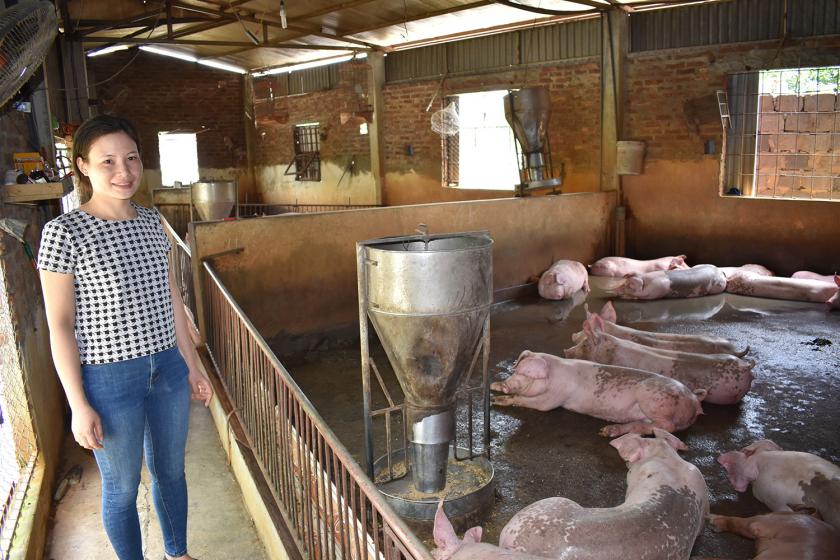Keeping up with climate change in Vietnam
Trin’s business is vital for driving greater public and political support for climate change mitigation in Viet Nam. With 3,444 km of coastline, the country is highly vulnerable to climate-related calamities. In June 2018, heavy rains, flash floodsandlandslides devastated the northern highlands, claiming the lives of 14, destroying over 736 hectares of crops and causing economic losses of over 160 billion Vietnamese dong (US$6.9 million). Rising sea levels are eroding and inundating the coasts around the southern Mekong river delta, salting the earth and the water supply.
Since 2011, the Government has invested 1.86 trillion Vietnamese dongs (US$80 million) to adapt to climate change. But without engaging women and marginalized groups, this investment can only go so far.
UN Environment and UN Women are bringing together civil society and policymakers from the Ministries of Agriculture and Rural Development, Natural Resources and Environment, Planning and Investment, the Vietnam Disaster Management Authority and Vietnam Women’s Union to understand the situation and come up with solutions.
Bridging data and policy divides
Le Quan Tuan, Deputy Director of the Science, Technology and International Cooperation Department of the Vietnam Disaster Management Authority says, "With the law on disaster management, the strategy for climate change, the targeted programme for rural areas and the law on gender equality, we have an entire system of legal provisions that are gender-sensitive. But these are all on paper, not really in our actions. We need to increase the effectiveness of our work when it comes to this. We lack guidelines and tools to measure progress."
There is a yawning gap between climate information and community access to it. In most cases at the grassroots level, men are the first to hear and share climate-related information and this influences how differently men and women can prepare for climate change and disasters.
Steering clear of stereotypes
Many stereotypes also persist that hold women back from fully engaging in climate change adaptation and mitigation. Too often, women are viewed as incapable in business, unable to handle new technologies or unsuited to responsibilities outside domestic duties.
Nguyen Ha, from GreenID, a Vietnamese non-profit organization working on sustainable energy opines, "Vietnam has a lot of potential to use renewable energy because it has many opportunities for solar and wind, biomass and biogas. When you apply renewable energy, it can bring more income for the women. When they become technically trained, they can contribute to reducing emissions. But women have a lot of work in the household and it’s important for the husband and the family to share the household work."
Entrepreneurs like Trin Gim also see the potential in expanding the market for renewable energy in Vietnam. The Government is stepping up its support for biogas energy-based solutions. Recently, the Ministry of Agriculture and Rural Development announced that they were issuing one million carbon credits from household biogas structures by 2020.
New beginnings
UN Environment and UN Women are preparing to implement the EmPower (Empowering Women to Secure Climate-resilient Societies) project in Vietnam, with the support of the Swedish International Development Agency.
Over the next five years, the project will strengthen gender equality in leadership, data, policies and investments in climate change and disaster risk. UN Environment also partners with ENERGIA, an International Network on Gender and Sustainable Energy working on gender mainstreaming and women’s energy entrepreneurship. Beyond Vietnam, the project will be implemented in Bangladesh, Cambodia and regionally across Asia and the Pacific.
Source: United Nations Environment Programme | September 2018














